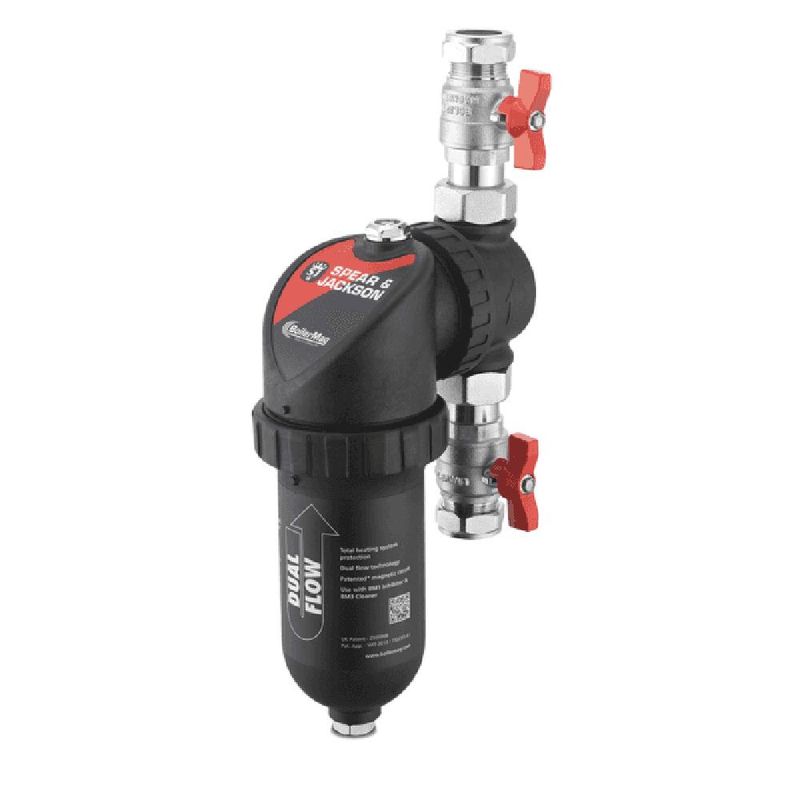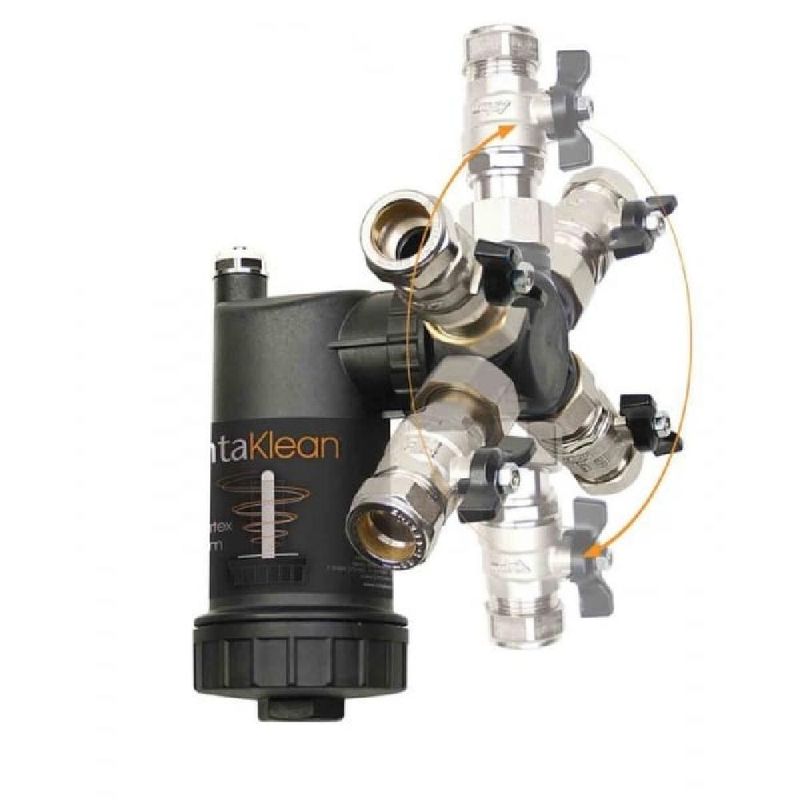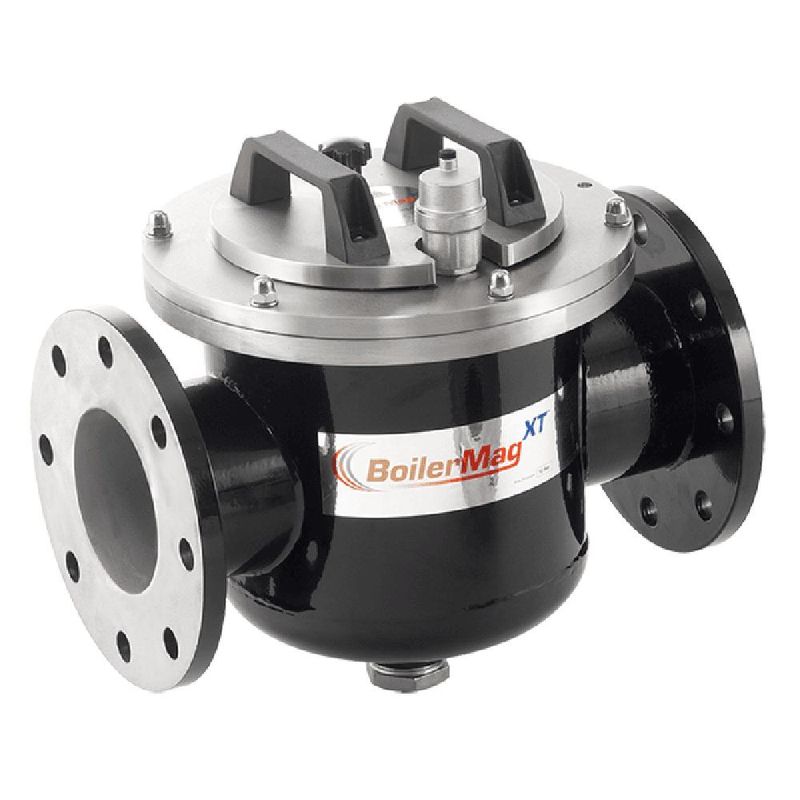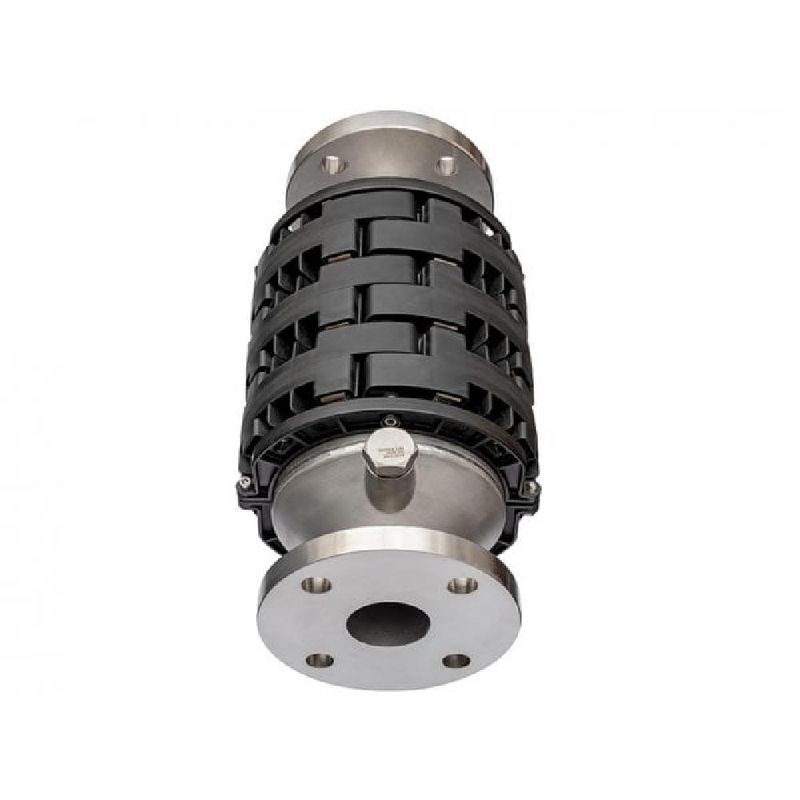Even the best central heating system is going to get clogged with debris over time, leading to reduced performance, higher energy bills and a less comfortable home.
If left unchecked, this might lead to substantial damage to your boiler, pipework and radiators that could take hundreds or even thousands of pounds to repair.
Let’s face it:
Largescale accumulation of sludge in a heating system is one of the engaged homeowner’s worst nightmares.
The good news is:
It doesn’t have to come to that!
With the right magnetic system filter, you can nip this eventuality in the bud and save yourself a world of trouble!
That’s why at Plumbing Superstore, we took a deep dive (pun intended) into magnetic filters to bring you the ultimate buyer’s guide.
Here’s what we’re going to cover.
Table of contents:
- What is a magnetic filter?
- What are the benefits of a magnetic filter?
- Where to fit a magnetic filter
- How to clean the magnetic filter on a boiler
- How long do magnetic filters last?
- Why a magnetic filter is a wise investment
What is a magnetic filter?

As water passes continuously through your central heating system, some of your pipes will inevitably rust. And as this rust peels off and mixes with dirt and debris, you get the dreaded sludge.
Enter the boiler magnetic filter.
Essentially, this is a large magnet device which attracts small particles and filters them out of your central heating system, thus preventing the gradual build-up of sludge and allowing water to continue to flow freely.
You might be wondering:
When should I fit a magnetic filter?
We recommend doing so when you install a new boiler. Having said that, here are the tell-tale signs you need a central heating magnetic filter as soon as possible:
❗ Persistent cold spots on your radiators
❗ Gurgling noises from your boiler
❗ Reduced hot water flow
❗ Regular leaks
If you get these repeatedly, it might be time you considered a new magnetic system filter.
What are the benefits of a magnetic filter?

There are plenty of benefits to installing a magnetic filter for central heating systems. We’ve already mentioned the obvious one – preventing the formation of harmful sludge.
And while this should be enough in and of itself, there are several additional advantages that will more than offset the initial boiler filter cost.
Here’s the scoop:
✅ Lower energy bills
✅ Reduced carbon footprint
✅ Longer boiler service life
✅ More efficient heating system
✅ Less likelihood of frequent, expensive repairs
So, in case you were wondering ‘Is it worth getting a magnetic filter?’, you now have your answer.
Where to fit a magnetic filter
A magnetic system filter is normally fitted to the boiler’s return pipe between the last radiator and the boiler so that flowing water can break any build-up before it gets to the filter.
In case you’re wondering:
You could fit it on the flow, but that would require extra work from your boiler, as any dust and debris would have to go through the boiler first.
In terms of the actual installation, it’s best to leave it to a Gas Safe certified engineer. They’ll typically follow these steps:
Step 1 – Drain the central heating system.
Step 2 – Mark the location on the pipe where the boiler water filter is to be fitted.
Step 3 – Cut the excess pipe.
Step 4 – Place valves on both ends of the open pipework.
Step 5 – Fit the magnetic filter and tighten it securely.
Step 6 – Re-pressurise the system.
How to clean the magnetic filter on a boiler

You should clean your central heating magnetic filter once a year.
Here’s how it’s best to go about it:
Step 1 – Turn off your boiler and the mains electricity supply.
Step 2 – Shut off the isolating ball valves to remove the filter from the system.
Step 3 – Take the lid off the filter.
Step 4 – Remove the filter and clean it thoroughly.
Step 5 – Replace the filter.
Step 6 – Turn your electric supply back on and test the system.
Keep in mind that there’s a wide range of magnetic filters which can differ significantly. For instance, some come with isolation valves, while others don’t have them.
So, always check the manufacturer’s instructions.
How long do magnetic filters last?

As long as you’ve installed your central heating system filter properly and continue to clean it on a regular basis, it could potentially last for anywhere from 10 to 20 years.
Naturally, the actual service life will depend on multiple factors, such as the quality of the filter (the best central heating filter for your home is not necessarily the most hyped one) and whether you live in an area with hard water (hard water causes significantly greater limescale build-up than soft water).
Key takeaway:
Unless you experience significant blockage and/or leaks, you should replace your magnetic filter whenever you replace your boiler.
Why a magnetic filter is a wise investment
Prevention is better than cure – and that’s never been truer than when it comes to your central heating system.
So, do yourself a huge favour by getting a magnetic system filter. It’s one of those things we rarely think about that can nevertheless make a massive difference in our everyday lives.
With plenty of available options on the market, you won’t have to look far and wide to get the right central heating magnetic filter for your home.













